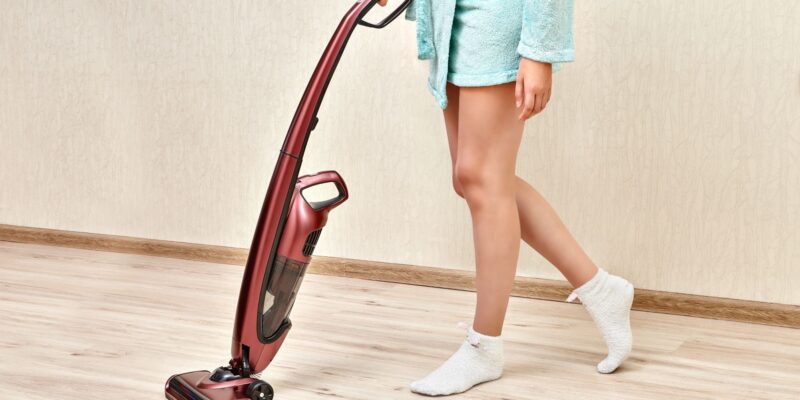Nothing lasts forever! The vacuum cleaner is also not an exception. You may use your vacuum cleaner with so much care but at some point, you’ve to decide that it’s time to let it go and have a new one.
So the real question is how do you know when it’s time to replace your old vacuum with a new one?
How Long Do Vacuum Cleaners Usually Last?
According to a Consumer Reports Survey, the life expectancy of a vacuum cleaner is eight years. Obviously, the lifespan varies by not only brands and types but your own personal use. The use also varies by your apartment size and need. If your vacuum cleaner is eight years old and lost its productivity, then it’s time for an upgrade.
If your vacuum cleaner isn’t cleaning up dirt as it should, it’s understandable to think that it’s time for a new one. But even if your vacuum is several years old and has seen a lot of use that doesn’t mean it’s worthless. Before spending several hundred dollars on a new vacuum cleaner, consider taking a good look if it could be fixed. Maybe it needs replacement part fixes that won’t break your wallet.
Types of Vacuums & How Long they Last
There are many different types of vacuum cleaners available in the market. Let’s talk about different types of vacuums and their lifespan so you can choose the right kind of vacuum for your needs.
Handheld Vacuum Cleaner
As the name suggests, a handheld vacuum cleaner is typically a smaller, lightweight, portable version of the traditional vacuum cleaner. Because of its compact size, it comes with its own set of pros and cons. The most obvious con is that it is not a good solution for vacuuming large areas of your home. Since they’re lightweight, you can use them in the car or tight spaces in the house with ease.
On the whole, two things determine the life expectancy of this type of vacuum. First, it works on batteries that can run out quickly. Second, the motor in a handheld vacuum is weaker than the one in an upright vacuum.
Considering that, handheld vacuums last for up to three years, maximum. If you take good care of a handheld vacuum, it may last a few months over the average limit, but you shouldn’t expect it to last for eight years.
Stick Vacuum Cleaner
Stick vacuums are lightweight and portable like handheld vacuums. They’re much easier to use at home but it also indicates their shorter lifespan. Any vacuum that you can carry around easily won’t last as long as a corded one. Often, it’s due to the less robust components, while at other times, the vacuums retain damage during movement.
On average, stick vacuums can last up to six years.
Upright Vacuum Cleaner
An upright vacuum cleaner is the traditional “push and move” model that is perfect for larger homes. You push it in front of you, meaning you don’t have to bend down. Today, most good uprights have independently powered brush rolls. This allows them to agitate dust and debris that lies deep within the carpet pile. Being relatively conventional, they are heavier, bulkier, and noisier.
However, the upright vacuum’s robust build quality makes it last quite long, as compared to other kinds. Due to a bulky build, upright vacuums are often more durable and can withstand wear and tear over time.
Most of them have a lifespan of up to eight years, even more. The upright vacuum does not work on batteries and most of them are corded, so you don’t have to worry about the batteries running out any time soon.
Canister Vacuum Cleaner
Canister vacuums do a terrific job cleaning bare floors, and some are very good at cleaning carpets. What makes canisters stand out is their design. Because the weight is distributed between the canister itself and the powerhead, they’re easier to move around than upright vacuums. That’s ideal if you live in a house with multiple levels. Their life expectancy is similar to upright vacuum which is eight years.
Robotic Vacuum Cleaner
In the late 1990s and early 2000s, several companies developed robotic vacuum cleaners, a form of carpet sweeper usually equipped with limited suction power. Some prominent brands are Roomba, Neato, and bObsweep. These machines move autonomously while collecting surface dust and debris into a dustbin. They can usually navigate around furniture and come back to a docking station to charge their batteries, and a few are able to empty their dust containers into the dock as well. Most models are equipped with motorized brushes and a vacuum motor to collect dust and debris. While most robotic vacuum cleaners are designed for home use, some models are appropriate for operation in offices, hotels, hospitals, etc.
You can expect your robot vacuum to last 4 to 6 years if you do proper maintenance. This number can fluctuate even more on cheaper robot vacuum cleaners.


